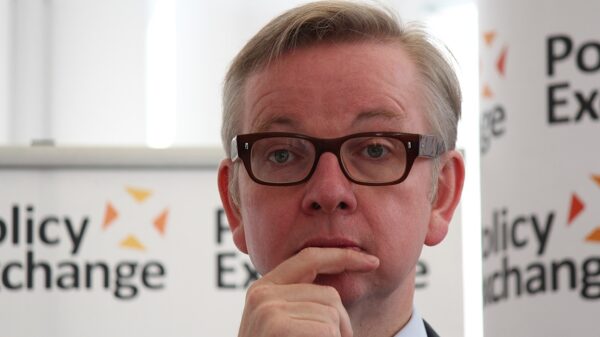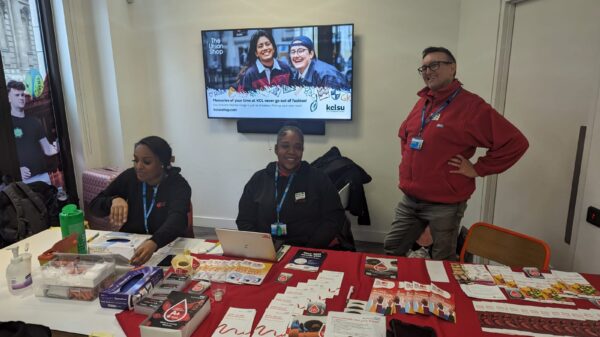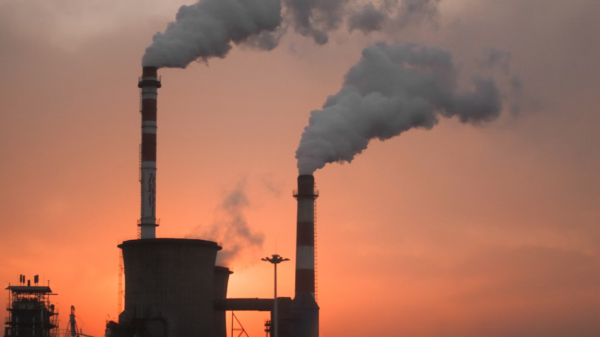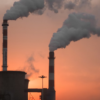Staff writer Kiren Graziano recounts the events of the annual KCL Political Debate and gives her take on the issues at hand.
On Monday October 17, the Politics Society held their annual political debate. I attended along with many of my fellow politics students, excited to listen to some controversial arguments from each party.
The debaters consisted of two representatives from each of the three main parties: Conservatives (the Tories), Liberal Democrats, and Labour. There were five topics covered throughout the debate. They discussed the cost of living crisis, economic policy, the climate crisis, the UK in the world, and the NHS.
Introductions
The Conservative party opened with a strong plea to the audience to keep an open mind and really consider the choices laid out in front of us. Stating that they knew a lot of the audience had come to the debate with their minds made up, the Tory representatives asked us to look beyond our preconceptions and listen to the facts. They came across as well spoken and mature. They acknowledged their party’s mistakes, but maintained that the Conservatives were the right choice for the economy and for the UK.
The Liberal Democrats took a much more casual approach to their introduction. Introducing their party as the party of removing boundaries, being sure to clarify that they meant more than just economic boundaries; belittling the Tory emphasis on economic stability. Appearing very relatable, they focused on the idea that they stood for making people’s lives easier.
The Labour party opened by preempting strikes on Blair and Brown, stating that while the Tories will play the blame game, Labour’s own mistakes were nothing compared to the blunders that we’ve recently experienced from the Conservative party. Stating that “enough is enough” and that their party had “listened and learned,” the Labour representatives seemed ready to fix what the Tories have broken.
The Cost of Living Crisis
The Tories went first on this topic. They blamed the global economic state, which felt a bit like a Liz Truss press junket. They pointed to fracking as a solution to become more energy independent and said that this was the way to “tackle the cost of living.”
Labour went next, appearing somewhat more prepared than their counterparts. They argued for freezing bills and windfall taxes, instating a £1,900/year cap on energy bills, and insulating 18 million homes. They made a point that they would fund these policies from the treasury, not from borrowing.
The Liberal Democrats closed this section of the debate. They came out in support of on-shore wind farms, housing insulation, and smart meters. They had good ideas, but were lacking in funding plans for these policies. However, they did patronise the Tory plan for fracking in the UK by pointing out that it was condemned by the founder of a major fracking company.
Economic Policy
Labour opened this section of the debate by stating that describing the economic situation as “bleak” would be an understatement. They pointed to underinvestment, lack of skills and instability as reasons for the current crisis. They then pivoted to point at the ineptitude of the Conservative party; calling attention to the recent U-turns and “changing Prime Minister [every] 20 minutes.” This comment got some loud applause from the audience, myself included.
The Tories had to follow this attack, and they did so by sticking to traditional Conservative values on the economy. Aiming for a plan that allows people to keep what they earn, “as far as [your] talents take you.” The Tories said they wanted to remove barriers to business, to which Labour commented that the Conservatives were the barrier themselves. They said their government had a coherent plan, ironic considering recent events.
The Liberal Democrats went last and agreed with the Labour party’s position. Stating that the economy in the 2010s (when they were in coalition with the Conservatives) was far better than what we have now, the Liberal Democrats suggested that the combination of themselves and Labour is a “whole lot better than the blue team.” They pointed out the fact that the infrastructure to import the cars we drive and the roads that we drive on are paid for by taxpayer money. A Tory representative shot back that his car was not owned by the state, a rebuttal that largely confused the audience.
The Environment
The Liberal Democrats opened this section by pointing to years of failure by both parties. They reminded the audience of the 1976 heatwave which was 8 degrees Celsius cooler than the one this past summer. They made a powerful statement that without concrete steps the government is “digging graves in the global south.” Subsidising energy efficient homes, banning fracking, and being 80% renewable by 2030 were the goals outlined by the Liberal Democrats. They also made sure to point out that when off-shore wind farms took off Ed Davey, a Liberal Democrat, was Energy Minister.
Labour went next, saying that we had to “recognise the scale and opportunity” of the climate crisis. They argued for being 100% renewable by 2030 and for banning fracking. Pointing out that fracking had been linked to earthquakes in a BGS report brought about my personal favourite moment from the debate. The Tory representatives repeatedly asked Labour to “name an earthquake caused by fracking,” to which Labour kindly invited them to read the British Geological Society (BGS) report. Then the Liberal Democrats came into the conversation with a list of earthquakes and damaged water sources that have been caused by fracking. It was a slam dunk shut down of the Tories.
The Conservatives went last on this topic. They pointed to their implementation of the net zero goal, placed most responsibility for the climate crisis on China and India, and endorsed fracking. They argued that since the UK is responsible for an “insignificant” percentage of global emissions, it is not the UK’s job to solve the climate crisis. It seems to me that, because the UK has the funding and the technology to be on the front line of green energy, the UK should use its resources to help the climate. However, the Tories argued that due to the current energy crisis, the climate issue should be put on the back burner. Focusing more on making sure people make it through this winter with the current economic situation, the party representatives stuck to their label as the party of sound economics.
The UK in the World
The Labour party went first and argued for sharing intelligence, ‘making Brexit work’ and unequivocal support for Ukraine. They made their case for “getting respect back” and not having such “callous” approaches to refugee and immigration policy. They made an emotional point that “children drowning” on their way to the UK seeking refuge is unacceptable and argued that there needs to be a more forgiving policy for immigration. They argued that either the system was broken, or that this was exactly what the system was designed to produce.
Liberal Democrats went next. Appealing to his own upbringing in a community with large numbers of immigrants, the Liberal Democrat representative hit home with me and, I’m sure, other members in the audience who come from a background of immigration. They took a compassionate stance that the UK should let refugees and immigrants into the country. However, they did not have much evidence to support their stance aside from anecdotal experience. They called the Conservative ideology “indifferent to human suffering” and pointed out that the Rwanda proposal was inhumane and destructive for the environment.
The most controversial arguments were certainly saved for last with the Conservatives closing this topic. They made a brief point that Brexit was behind us before jumping into immigration issues. One Tory representative said that “we should not allow people to illegally enter this country just to trap them in a welfare system and have them not reach their full potential, that’s not what we stand for.” I raise the question of whether they believe that people in these circumstances would “reach their full potential” in the countries they are trying to flee. While arguments against illegal immigration have obvious merit, the Tories, in my opinion, failed to hit these points.
In a breath of fresh air for the audience, the Liberal Democrats and Conservatives came to common ground at the end of this topic. They agreed on the idea that they need to keep an eye on Taiwan and Hong Kong, especially now that Russia’s war in Ukraine has set a precedent of ignoring sovereignty.
NHS and healthcare
The Tories began this topic by recognising that “health has not been our strong point.” Then they moved into an argument saying that they want to shift to the Scandinavian model of healthcare (not Conservative party policy but their individual position), failing to elaborate in depth on what this meant, partly due to time constraints. Essentially the Tories did not back their own party’s previous policy claiming that the current Conservative government was not adhering to their values. “One day we will be in government,” they asserted to the audience.
Labour went next, being sure to call attention to the fact that the Conservatives weren’t even defending Conservative policy. They pushed for doubling medical places at university and putting more focus on mental health services. They claimed that there was a “really strong NHS” in 2010, without major vacancies or overworked staff and claimed that this showed that the system worked, but that the government was failing.
The Liberal Democrats closed with arguments for bringing back the nurse’s bursary and a £1,000 carer’s allowance to keep people out of the hospital. They pointed out long waiting times and air quality deaths as measures of the current NHS’s failure and pointed a finger at Tories blocking civil service reforms.
Conclusion
The annual political debate was certainly a divisive and entertaining event. With lots of passionate argument, each team brought something to the table. The Conservatives came across as sturdy and strategic, sticking to their traditional values and skilfully managing to avoid any talk of Liz Truss. The Liberal Democrats were charming and charismatic, appealing to the audience on a personal level and poignantly joking around. The Labour party showed that they were extremely knowledgeable and quick witted, backing up every argument with facts and figures all the while sniping back and forth with the other parties.
If you didn’t get a chance to attend the debate this year, I’d highly recommend getting a ticket for next year’s event. Whether you’re a politics student or not, the debate is certainly an entertaining and informative event for everyone.


















